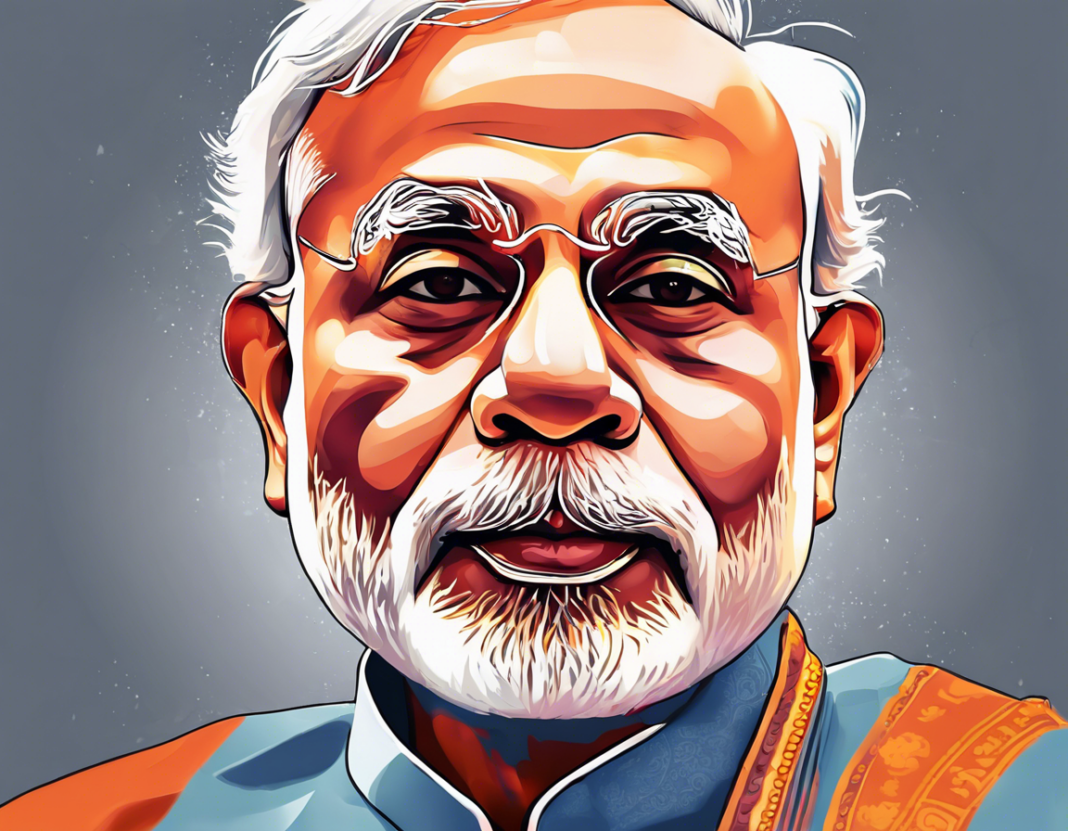Born on September 17, 1950, in Vadnagar, a small town in Gujarat, Narendra Modi is one of the prominent political figures in India and has been serving as the Prime Minister of the country since May 2014. His journey from a humble background to the highest political office in India is nothing short of remarkable. This article aims to delve into the life, achievements, and contributions of Narendra Modi.
Early Life and Political Career
Narendra Modi was born into a modest family in Gujarat. He experienced early struggles and worked at his family’s tea stall as a child. His entry into politics began as a member of the Rashtriya Swayamsevak Sangh (RSS), a Hindu nationalist organization. Modi later joined the Bharatiya Janata Party (BJP) and rose through the ranks steadily.
Chief Minister of Gujarat
Modi’s tenure as the Chief Minister of Gujarat from 2001 to 2014 was marked by both praise and controversy. His governance was known for economic development, infrastructure growth, and attracting investments to the state. However, his administration also faced severe criticism for the handling of the 2002 Gujarat riots, an incident that polarized opinions about him.
Prime Ministership
In 2014, Modi led the BJP to a landslide victory in the general elections and became the 14th Prime Minister of India. His tenure has been characterized by ambitious initiatives like “Make in India,” “Digital India,” and the launch of the Goods and Services Tax (GST). He has pushed for economic reforms, infrastructure development, and enhancing India’s global presence on various platforms including diplomatic visits worldwide.
Achievements and Awards
- Swachh Bharat Abhiyan: A nationwide cleanliness campaign that aimed to make India open defecation free.
- Pradhan Mantri Jan Dhan Yojana: Financial inclusion program to provide banking services to the unbanked population.
- Ayushman Bharat: A health insurance scheme to provide coverage for vulnerable populations.
- Surgical Strikes: Modi’s government authorized military strikes against terrorist targets across the border, showcasing a strong stance on national security.
International Relations
Modi has placed a significant emphasis on strengthening India’s ties with other countries. He has engaged in strategic partnerships with the United States, Japan, and Israel, among others. His participation in global forums like the G20 summits and his advocacy for climate change awareness have increased India’s presence on the world stage.
Controversies and Criticisms
While Modi enjoys a large support base, his leadership has also faced criticism on various fronts. Critics point to concerns about religious intolerance, freedom of expression, and human rights violations. The handling of certain domestic issues and the economic impact of policies like demonetization have been subjects of intense debate.
Future Outlook
As Narendra Modi continues his term as Prime Minister, the focus remains on sustaining economic growth, fostering innovation, and navigating the complexities of Indian politics. His leadership style, ambitious vision for India’s development, and ability to connect with the masses will all play crucial roles in shaping the country’s future.
Frequently Asked Questions (FAQs)
1. What is Narendra Modi’s educational background?
Narendra Modi holds a Master’s degree in Political Science from Gujarat University.
2. Has Narendra Modi been involved in any social initiatives?
Yes, Modi has been associated with several social programs such as the Beti Bachao, Beti Padhao campaign aimed at promoting the welfare of girls.
3. What is the significance of Narendra Modi’s “Make in India” initiative?
The “Make in India” campaign was launched to promote manufacturing and boost job creation in India by encouraging multinational and domestic companies to manufacture their products in the country.
4. How has Narendra Modi’s foreign policy impacted India’s position on the global stage?
Modi’s foreign policy has focused on fostering stronger ties with key nations, enhancing trade relations, and increasing India’s influence in global organizations.
5. What are some key economic reforms initiated by Narendra Modi?
Modi has introduced significant economic reforms such as the implementation of the Goods and Services Tax (GST), the Insolvency and Bankruptcy Code (IBC), and initiatives to promote digital payments and cashless transactions.
In conclusion, Narendra Modi remains a pivotal figure in Indian politics, with a complex legacy that elicits diverse opinions. His leadership style, vision for development, and initiatives have left a lasting impact on India’s political and economic landscape. Whether one supports or critiques his policies, there is no denying the significant role he plays in shaping the country’s future.




